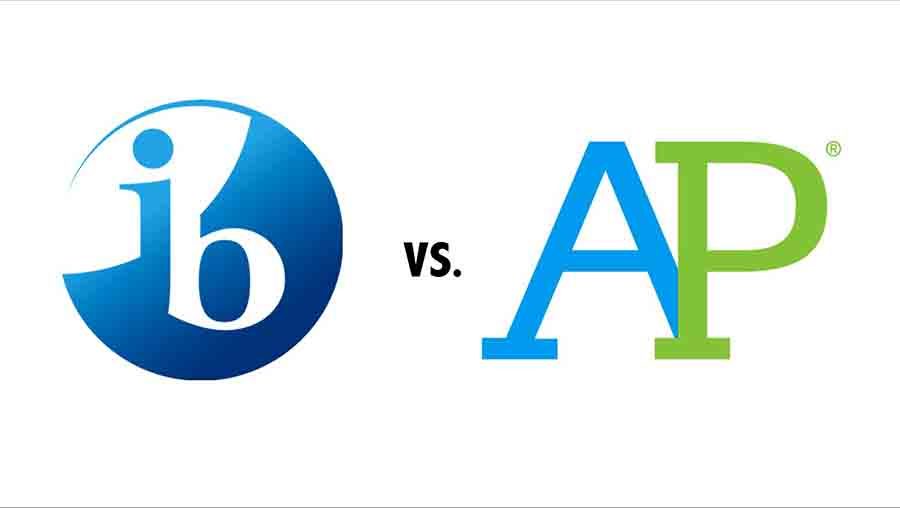Advanced Placement vs. International Baccalaureate: The Difference of Two Rigors
How two seemingly similar and extremely rigorous programs differ vastly
January 24, 2017
Many of you have probably heard of or are involved in an Advanced Placement (AP) class. But have you ever heard of an International Baccalaureate (IB) class?
Thousands of schools across the world cater the IB Program, including the United States. While Coronado only offers AP courses, Palmer is the only school in D11 to offer the IB curriculum. IB and AP are both extremely rigorous programs, but IB focuses on a more worldwide focused class curriculum while AP focuses on bringing the college challenge into the high school classroom.
The AP program is run under the College Board, and consists of a variety of subjects at the collegiate level being brought into high schools all over the US and Canada. Any subject from calculus based physics to an advanced art is offered as an AP class for college credit. Coronado offers many AP courses, and at the end of the school year, D11 pays for students to take the AP test for their designated course; these tests are graded on a scale from 1 to 5. Most colleges accept anything above a 3 or a 4 for credit for the class, meaning the more classes a student takes, the more college credit he or she could earn.
IB on the other hand is an immersive, intense study program that focuses on bringing “an intercultural understanding and respect” to the classroom of students everywhere (ibo.org). Students can attend an IB approved school to receive the same core class studies that others do in hundreds of countries across the globe. While AP classes are offered alongside regular classes and honor classes, the IB curriculum is a completely isolated set of courses. If one chooses to attend an IB school, he or she is required to take the core classes, and then a few additional subjects. The core classes sound alien to most students not in the program: Theory of Knowledge (TOK), Creativity, Activity, Service (CAS), and Extended Essay. In addition, students can take a variety of subjects dependent upon the school or country that they live in. These classes are divided up into two categories: Higher level (HL) and standard level (SL).
An AP-turned-IB student in Colleyville, Texas named Lauren DiFilippo gave us insight on her experience at Westlake Academy, and the difference between her classes there and her previous AP classes at The Oakridge School in Arlington, Texas. Lauren transferred to Westlake Academy after finishing up her sophomore year. She attended multiple IB seminars over the summer of 2016 that gave detail into the IB curriculum and the world view it brought to the classroom. The seminars pushed her to switch schools halfway through her high school career. Lauren says she enjoyed her AP classes, but preferred to have the worldwide curriculum in her classes, also saying that “IB is more structured and has more specific requirements than AP.” In addition to her core classes, Lauren takes the ‘History of America’ course. This class closely compares with the AP United States History course (also known as APUSH). In her class, they cover material needed to take a large test at the end of the school year, similar to an AP test. She also adds though, “Our testing does not take place in one sitting, it is spread out and takes much longer to complete, as well as prepare for.”
The closest IB school to Coronado is Palmer. However, unlike many other IB schools where it is solely IB curriculum, Palmer is a regular public high school with the IB program within for those select students who enroll in the IB program. These students have a completely separate curriculum from others at the school. Abby Timmins is a junior at Palmer in the IB program. She has been involved in the IB curriculum for three years, first starting in the Middle Years Programme (IBMYP) for her freshman and sophomore years, and is now in the Diploma Programme (IBDP) for her junior year (and senior year next year). Abby says, “I personally think that IB is more challenging than AP; there are certain additional assignments in the program that you have to do in order to get your diploma. I definitely have to do a lot more writing than my AP friends and my tests are often more difficult, as tests in IB are incredibly specific and your answers have to meet certain international criteria.” Writing is a huge part of the curriculum, and Abby also adds that, “I would not recommend IB for someone who has difficulty adjusting to harder classes and stricter criteria.” She says that the Diploma Programme is significantly more difficult than the Middle Years Programme, and that, “[she] was surprised to find that [she] actually had to work to get As.” IB requires a lot of work and time and effort, including lots of late nights with little to no rest. Abby even adds that there is a meme page dedicated to the struggles of IB!
Vanessa Vatalaro, a counselor at Coronado, also tells me that unless a student is extremely strong in writing and English, he or she probably should not enter into the IB curriculum. Writing is a key factor in the program, with every single class requiring writing – even math courses. AP classes here offer the same rigor of a college course, and are available to be mixed with other levels of courses.
So which is better? There is no way to really determine which is the better program, it all depends on the student. If you think AP or IB may be right for you, check out their respective websites below for more information and details about the programs.
IB Program: http://www.ibo.org
AP Program: https://apstudent.collegeboard.org/home


